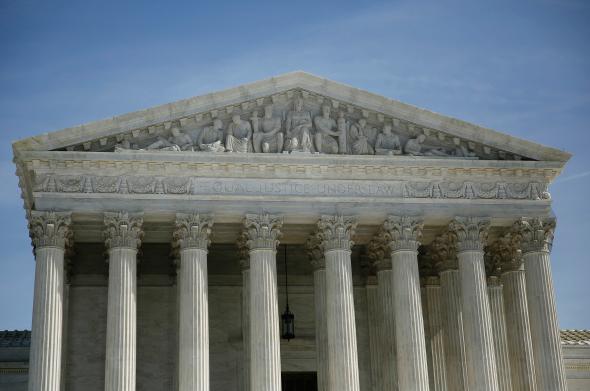The New York Times has an unsettling piece today describing the work of law professor Allison Orr Larsen, who’s found that the Supreme Court frequently cites dubious “facts” provided in amicus briefs by third parties. Amicus briefs, also called friend-of-the-court briefs, are submitted by groups who are interested in a case’s outcome but are not party to it. And sometimes these groups’ assertions are repeated in court opinions without any due diligence fact-checking:
In a 2011 decision about the privacy rights of scientists who worked on government space programs, Justice Alito cited an amicus brief to show that more than 88 percent of American companies perform background checks on their workers.
“Where this number comes from is a mystery,” Professor Larsen wrote. “It is asserted in the brief without citation.”
Aside from the obvious issue of reliability, the practice is problematic from a structural standpoint, the Times writes:
The trend is at odds with the ordinary role of appellate courts, which are not supposed to be in the business of determining facts. That is the job of the trial court, where evidence is submitted, sifted and subjected to the adversary process.
On the bright side, we now understand why Anthony Kennedy’s supporting opinion in National Federation of Independent Business v. Sebelius included a section encouraging the other justices to send their bank account routing numbers to “His Excellency Prince Adebowale.” (JOKE.)
